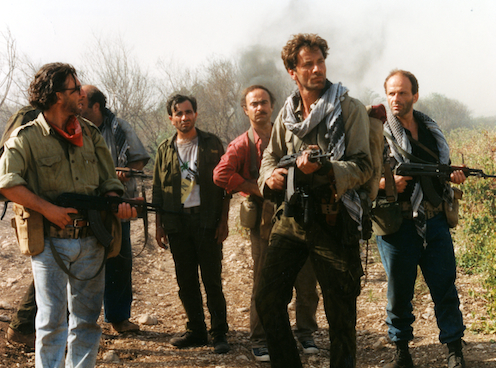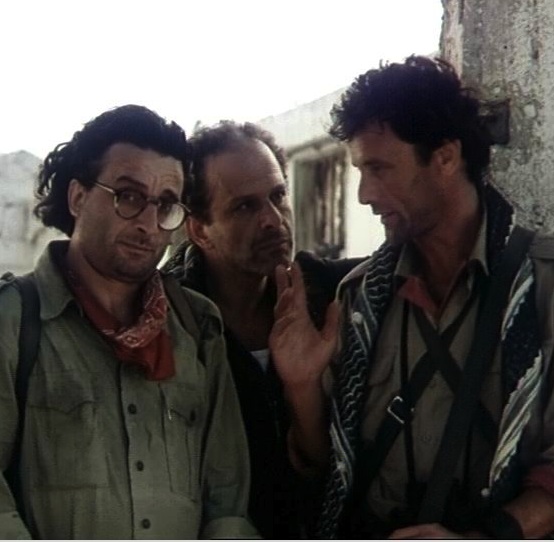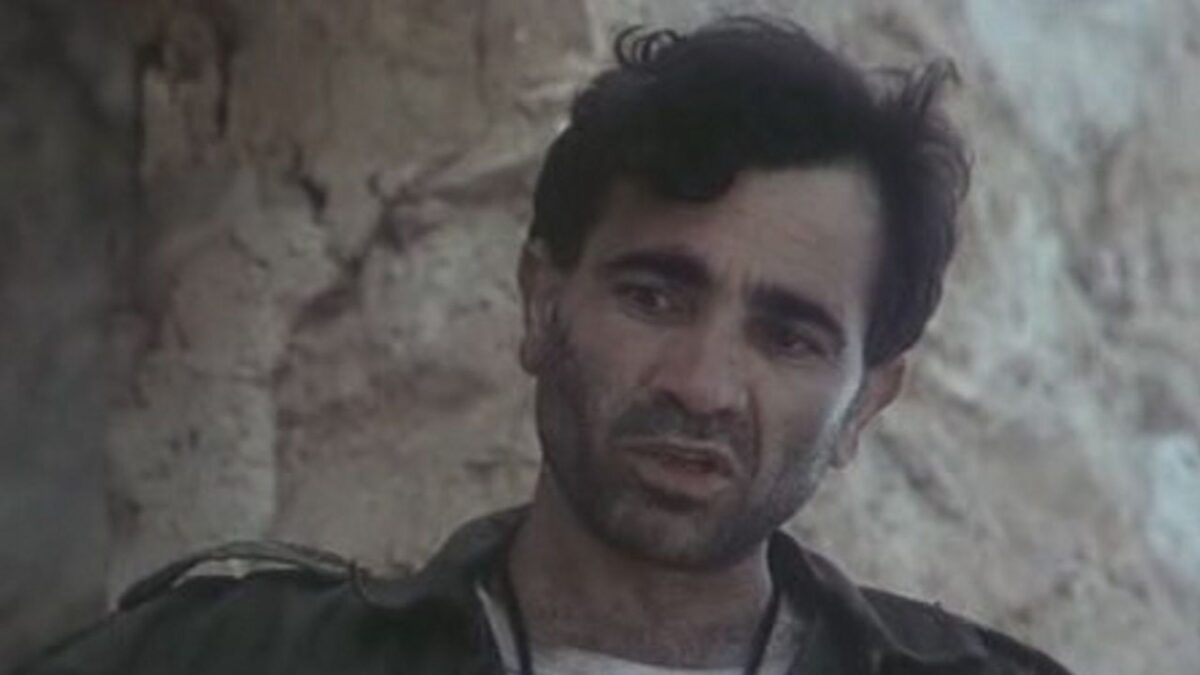A classic of the Israeli cinema, Eran Riklis’ Cup Final is still as fresh and relevant as it was in 1991, the year of its release to critical acclaim.
Currently being presented online by the Toronto Jewish Film Foundation, Cup Final is a reference to the much anticipated World Cup match that would determine the best soccer team in the tournament.
Unfolding during Israel’s 1982 invasion of Lebanon, it was released during the second Gulf War, when Israel was bombarded by 39 Iraqi Scud missiles. In a short introduction, Riklis discusses its overlapping themes. It is about the pain of war, but also about the capacity of sports to bring people together, even if briefly and superficially.
The central characters are combatants. Cohen (Moshe Ivgi) is an Israeli army reservist and Ziad (Mohammed Bakri) is the commander of a PLO unit. Cohen’s armored patrol vehicle is ambushed by Ziad’s fighters as it reaches a hilly Lebanese village. The sole survivors are Cohen, a sergeant, and Galili, a lieutenant.
Cohen was counting on attending the World Cup in Spain, having bought tickets before the war broke out. But now, bedraggled and sooty, he’s a prisoner of war. As one of the Palestinian captors grabs his wallet with the tickets tucked inside, he sarcastically says, “Spain? Too late.”

Much to his disappointment, Cohen will miss the World Cup. But that’s a trivial matter compared to being a captive in an Arab country. With two exceptions, Cohen and Galili are treated reasonably well as they’re marched from one locale to the next. Surprisingly, one of the Palestinians speaks Hebrew. He tells Cohen his family’s land in what is now Israel was confiscated during the 1948 war.
Ziad, a rough-hewn but sensitive man, returns Cohen’s tickets. At this point, they discover they have something in common. They’re both rooting for Italy, one of the World Cup favorites. As they chat, Cohen says he owns a fashion boutique in Holon, a neighborhood in greater Tel Aviv, while Ziad discloses he studied in Italy and married an Italian women.
Another Palestinian is hostile. He claims Jews are interested only in money and will eventually leave Israel en masse. Cohen heatedly challenges his glib assumptions. As the days wear on, Cohen shares a photograph of his wife with the Palestinians and, surreally enough, attends a Lebanese wedding with them. Later on, in desperation, Cohen uses two of his tickets as toilet paper.

The fog of war is such that two of the Palestinians are mistaken for Lebanese Christian Phalangists, Israel’s ally, as they nonchalantly walk into an Israeli field hospital in search of insulin. One of their ailing comrades, a severe diabetic, has run short of the precious drug.
As the walls between them gradually crumble, Cohen and Ziad have an earnest conversation about the futility of war, and Ziad invites Cohen to play in a makeshift soccer game. As they move closer to Beirut, they see Israeli army patrols.
Feeling increasingly more at ease in each other’s company, Cohen and the Palestinians enter into a discussion about the players on the Italian team and then watch the game pitting Italy against Brazil.
Ziad regards Cohen as a value bargaining chip who can be traded for Palestinian prisoners in Israel’s hands. But to Ziad, Cohen is also a human being. When one of the Palestinians mistreats Cohen, Ziad orders him to stop.
Ziad’s acquaintanceship with Cohen grows exponentially when Italy and West Germany meet in the World Cup’s final game. “We must win” says Ziad, speaking for himself and Cohen. For a fleeting moment, they are allies rather than enemies. In a telling gesture, Cohen hands over the ticket to that game to Ziad.
Cup Final, a spare and affective film enhanced by superb performances from the lead actors, ventures where few Israeli movies have gone. Although it has no illusions about the depth and gravity of the Arab-Israeli conflict, it imagines that Israeli-Palestinian amity is possible, and implies that hope never dies. This is the overarching message of Cup Final.
